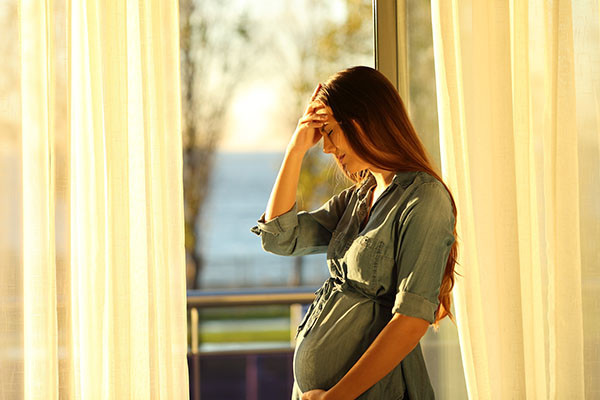
Tips to leverage neuroplasticity to maintain cognitive fitness as you age

Can white noise really help you sleep better?

Celiac disease: Exploring four myths

What is prostatitis and how is it treated?

What is Cushing syndrome?

Exercises to relieve joint pain

Think your child has ADHD? What your pediatrician can do

Foam roller: Could you benefit from this massage tool?

Stepping up activity if winter slowed you down

Common causes of cloudy urine
Mental Health Archive
Articles
How can you manage anxiety during pregnancy?
During pregnancy it's completely normal to experience a certain amount of anxiety about the baby, giving birth, and becoming a new parent. But for some women this worry takes over their thoughts and becomes debilitating. There are treatments available that may or may not involve medication, depending on the individual situation.
Back to the future: Psychedelic drugs in psychiatry
Cognitive behavioral therapy for insomnia by telemedicine: Is it as good as in-person treatment?
Coming out of COVID
Common questions about medical cannabis
Could COVID-19 infection be responsible for your depressed mood or anxiety?
Sleep to solve a problem
A rocky childhood could be bad for your heart
Childhood trauma may raise the risk of cardiovascular disease, but making lifestyle changes can help you stay healthy.
Traumatic childhood experiences may have a lasting effect on your heart health.
A review published online Dec. 2, 2020, by JAMA Cardiology found that adults who had multiple adverse childhood experiences (ACEs) — like being neglected; suffering physical, sexual, or emotional abuse; or witnessing violence at home — had double the risk of cardiovascular disease and an early death compared with people who didn't face any ACEs at all.
Can personality affect heart disease risk?
Negative traits such as anger and insecurity have been linked to heart-related problems. Taking steps to temper these tendencies may help.
Remember the Type A personality? First coined back in the 1950s, the term refers to people who are aggressive, ambitious, competitive, and time-conscious. But the notion that Type As were more likely to have heart attacks than their more laid-back counterparts turned out to be untrue, as numerous studies in the 1980s and 1990s revealed.
But in the early 2000s, another personality type — Type D for distressed — began getting more attention. Type D people are anxious, irritable, and angry; they also tend to feel ill at ease in social situations and are uncomfortable opening up to others. According to a 2018 review in Current Cardiology Reports, having a Type D personality is a risk factor for cardiovascular disease. The lead author, psychologist Johan Denollet, first described Type D and created a test for it (see "Type D personality test").
How isolation affects memory and thinking skills
Consider your social interaction if you've been feeling foggy.
We've all been isolated from many family members and friends during the pandemic. If you've been having a harder time remembering things or processing information since the pandemic began, it could be an isolation side effect.
"It's something I'm seeing clinically. Some people were okay before the pandemic and now they're having faster cognitive decline," says Dr. Joel Salinas, a behavioral neurologist and faculty member of the Harvard Center for Population and Development Studies.

Tips to leverage neuroplasticity to maintain cognitive fitness as you age

Can white noise really help you sleep better?

Celiac disease: Exploring four myths

What is prostatitis and how is it treated?

What is Cushing syndrome?

Exercises to relieve joint pain

Think your child has ADHD? What your pediatrician can do

Foam roller: Could you benefit from this massage tool?

Stepping up activity if winter slowed you down

Common causes of cloudy urine
Free Healthbeat Signup
Get the latest in health news delivered to your inbox!
Sign Up











